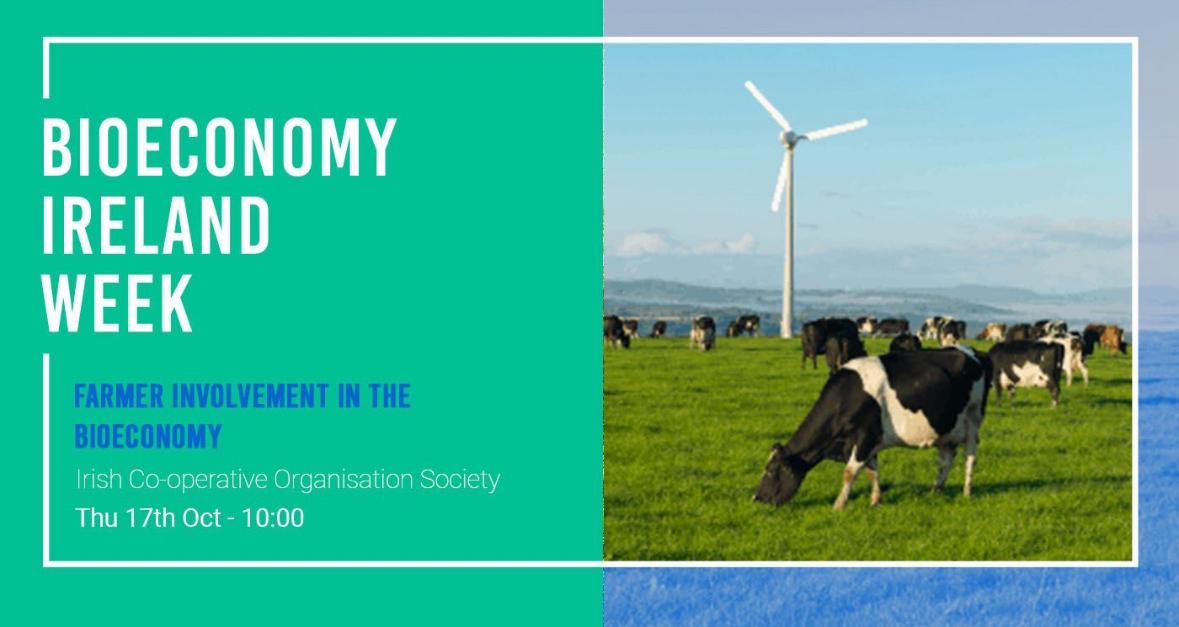‘Farmer Involvement in the Bioeconomy – What’s Happening in Ireland and Europe’

As part of Bioeconomy Ireland Week 2024, ICOS held an online event on developments in the bioeconomy which offer potential opportunities for farmers here in Ireland. The mornings proceedings explored possible solutions to the challenges that face farming from emission reduction targets to nutrient management and storage and water quality.
These diversification opportunities may present a pathway to a more resilient future and should also deliver economic benefit. Topics included the latest policy developments, the immediate opportunities that processed manures present, the potential of anaerobic digestion at scale (Danish example), cooperative bioeconomy developments in France, an update on recent announcements Farm Zero C and ICOS Skillnet activities.
Maurice Deasy of Tegasc discussed the latest proposals on ‘ReNure’ (manure processing) which may represent an opportunity to kick start the Biomethane sector, whilst offering a solution for improved nutrient management and assisting with storage and nitrates derogation challenges. Maurice stated “if you’re above 170 (kgs organic N/ha), currently you can export your slurry but cannot take back the digestate, that’s what ReNure is looking at. You could then export slurry, process it and reimport, closing the circularity loop”.
In his presentation Matthew Halpin from the Department of Agriculture, Food and the Marine reported on recent developments in the Bioeconomy, including the Irish Bioeconomy Action Plan and what this could mean for primary producers.
According to Matthew, over €40m has been invested in applied research over 10 years, and in 2023/24 alone, over €19m was allocated for pilot and demonstration initiatives in the bioeconomy.
Michael Tersbøl of Nature Energy based in Denmark outlined how scale can deliver significant benefits including for farmers through value-added relationships. He presented on the standardized approach taken across Nature Energy’s 14 large scale Biogas facilities and value-added outputs including ‘designer’ biofertilizer and CO2 capture and use. The separated digestate helps farmers to target nutrients where it is needed most. Some farmers want low dry-matter liquid nitrogen with high ammonium content, others want phosphorus and potassium. He also explained how farmers benefit through ‘declared benefit’ of the contents of digestate and how they support farmers with storage and logistics. ‘We actually pay farmers for their manure, take out the gas and deliver back the digestate’.
James Gaffey (MTU) discussed recent and ongoing developments around grass biorefining at the Farm Zero C project and the potential future impact for Irish farmers. Since 2018, some €70m in funding has been secured by MTU’s ‘Circbio’ research group and over 30 research projects carried out.
Finally, Billy Goodburn presented the work of ICOS Skillnet and the most recent offerings on awareness raising for primary producers and industry.
The event closed after panel Q&A chaired by John Brosnan from ICOS.